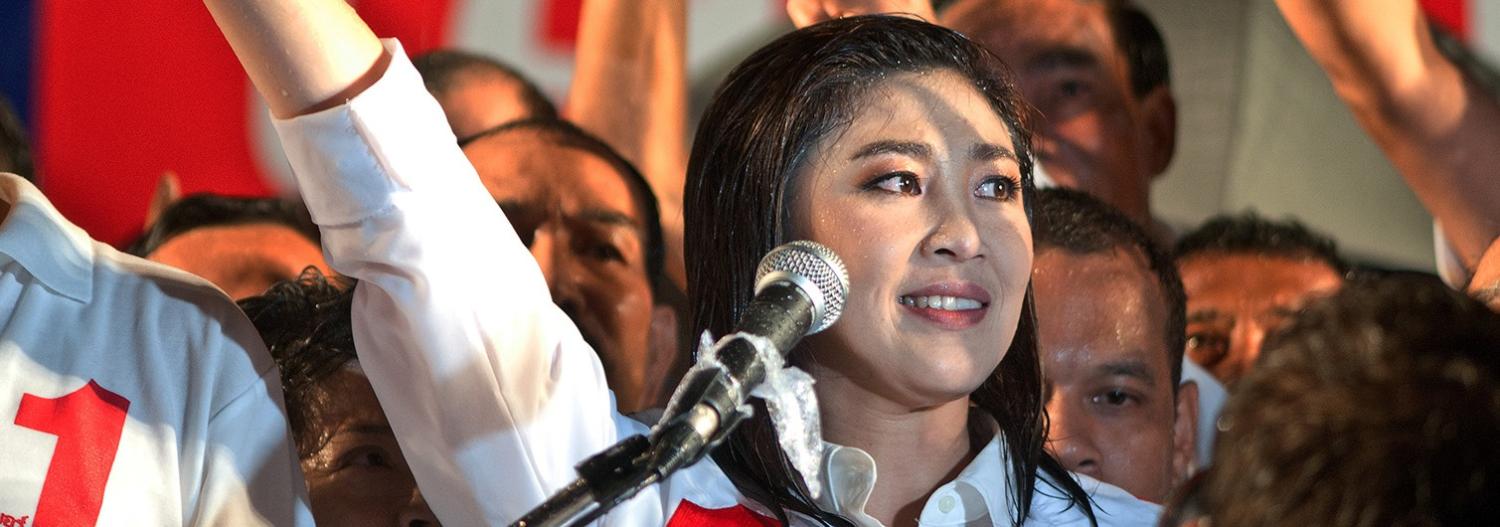Today, former Prime Minister Yingluck Shinawatra was due in Thailand's Supreme Court to hear the ruling on charges against her of dereliction of duty while in office. Unlike her 3000 supporters who had gathered outside the court or the 4000 police deployed to maintain order, Yingluck failed to show. The court issued a warrant for her arrest and a new verdict date was set for 27 September.
It seems like déjà vu. Yingluck's brother and former PM Thaksin Shinawatra has lived in self-imposed exile since he was thrown out in a military coup in 2006 and found guilty in absentia for abuse of power. Yingluck's no-show on Friday has led many to again speculate that she may also flee abroad. The issuing of the arrest warrant for Yingluck now allows the court to sentence her in absentia. If found guilty, she may be jailed for up to 10 years and receive a lifetime ban from politics. She is already serving a five-year ban from politics following her impeachment in 2015.
In her defence, Yingluck's lawyer said she failed to attend the court on Friday due to health problems, explaining she was suffering from vertigo. On Thursday, Yingluck asked her supporters (via Facebook; she has six million followers) to stay away from the court. Yingluck’s supporters were reportedly moved on throughout the week as they tried to set up a camp outside the court.
Demonstrating the concern of the military government ahead of the verdict, new CCTV cameras were installed and 4000 police deployed in what the army's commander in chief called a 'worst case' risk management strategy. The sheer number demonstrated the military's desire to show their control of the situation, an image spoiled by Yingluck’s non-attendance.
Yingluck maintains her innocence, arguing that the controversial rice-pledging scheme for which she is on trial was for the benefit of farmers and the country. The scheme was aimed at controlling the rice market to improve prices. It certainly boosted her political support among rural populations, where the Shinawatras support base is strongest, but her government's purchase of rice at above market prices backfired when the market collapsed. Millions of tonnes of rice worth over US$10 billion sat idle in government warehouses. At best, the policy was ham fisted in design and implementation; at worst, it was another incarnation of political system plagued by pork barrelling and corruption.
For the military junta, Yingluck is a symbol of the division that has plagued Thai politics. For her adoring supporters, she is an icon for whom many have pledged to fight.
The United Front for Democracy against Dictatorship (UDD) – a Yingluck-backing 'red shirt' group which was actively involved in mobilising her supporters for the 2013-14 protests – said all rulings need to be properly explained to the public and that the Yingluck's supporters should be allowed to freely assemble in Bangkok to support her. If any protests are to take place in the wake of today’s happenings, the UDD will be a central driver.
Three years after the military coup, justified as a necessary stabilisation move to end deadly protests and political deadlock, the trial of Yingluck rehashes old grievances and threatens to unsettle the relative (albeit enforced) calm. In doing so, it sets back the military’s reform agenda.
Yingluck's non-attendance is likely to do one of two things. Either she, like her brother, will slip away into relative obscurity but become a recurrent thorn in the side of Thai political reform. Or the pursuit for Yingluck will thrust her and her supporters back onto the political centre-stage, deepening the fractures between north-east and central Thailand.
For the cynics, any unrest will be used by the military as justification for further repression and postponement of elections. For those of a more generous mindset who recognise the political can of worms the military seized, Yingluck's persistent presence will be a thorn in the side of a country in much need of political and social reform.
Photo by Flickr user Ratchaprasong.

